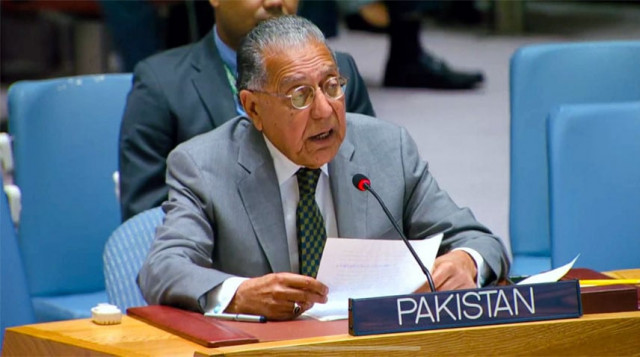Pakistan commits to expanding CPEC at UN meeting
Ambassador Akram emphasized the significant impact of connectivity projects via Afghanistan on regional stability.

Pakistan has reaffirmed its dedication to accelerating and expanding the China-Pakistan Economic Corridor (CPEC), with plans to extend its benefits to Afghanistan for enhanced regional peace and security.
Speaking at the UN Security Council debate on cooperation between the UN and regional organizations in New York on Friday, Pakistan's Permanent Representative to the UN, Ambassador Munir Akram, emphasized the significant impact of connectivity projects through Afghanistan on regional stability.
Ambassador Akram expressed regret that the ambitions of one large state for regional dominance had undermined the potential of the South Asian Association for Regional Cooperation (SAARC).
He called for increased regional integration by adhering to UN principles and highlighted the importance of regional and inter-regional initiatives, in collaboration with the UN, for fostering cooperation and understanding in peace, security, and economic development.
On July 18, Federal Minister for Planning, Development, and Special Initiatives, Ahsan Iqbal, chaired a meeting to assess the implementation of decisions regarding the China-Pakistan Economic Corridor (CPEC) projects.
These decisions were particularly those made during Prime Minister Shehbaz Sharif’s recent visit to China.
“There is complete agreement between the leaderships of China and Pakistan on the second phase of the China-Pakistan Economic Corridor, also known as CPEC 2.0,” said Iqbal.
The minister said his visit to China last week was a continuation of the PM’s discussions with the Chinese president and prime minister, which focused on the strategic implementation of these decisions to ensure the success of CPEC 2.0.
Mentioning the global interest in China’s economic development model, he said world leaders were keen to benefit from China’s innovative approach. “As of 2018, Pakistan was the biggest beneficiary of China’s economic model and open market due to CPEC,” he remarked.



















COMMENTS
Comments are moderated and generally will be posted if they are on-topic and not abusive.
For more information, please see our Comments FAQ